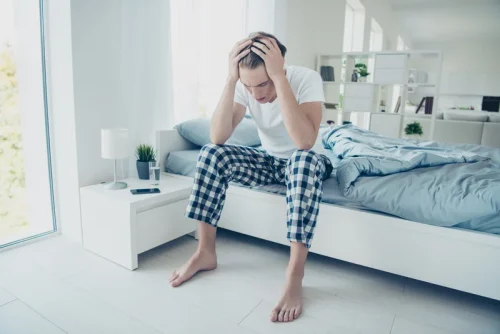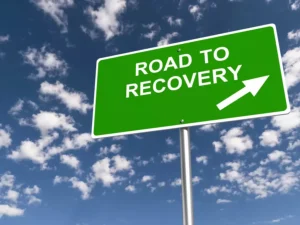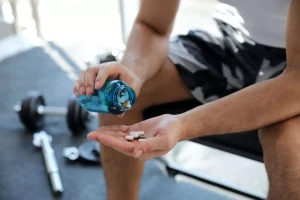
It also leads to lighter, more restless sleep as the night wears on, diminished sleep quality, and next-day fatigue. In addition to altering your sleep architecture, alcohol can disrupt your sleep by interfering with contributing to sleep disorders and interfering with circadian rhythms. Yules, Freedman, and Chandler (1966)studied three young non-alcohol dependent, men over 5 nights of drinking, with 1g/Kgethanol administered 15 minutes before bedtime. Yules,Lippman and Freedman (1967) studied four young men over three or five nights ofdrinking with 1 g/Kg ethanol administered 4 hours before bedtime. In this population based setting, drinking high volumes of alcohol or drinking hazardously may contribute to the prevalence of sleep problems in older age. Those with disrupted sleep should consider reducing alcohol consumption and people in this age group, particularly men, should be discouraged from using alcohol as a sleep aid.

The association between alcohol consumption and sleep disorders among older people in the general population

As children grow older and approach adolescence, many of them may experience a shift towards eveningness, a phenomenon seen commonly in boys [11]. Beyond the second decade of life, individuals tend https://ecosoberhouse.com/ to revert back towards morningness [12]. The clinical significance of eveningness is that emerging evidence has linked it with an increased risk for psychopathology such as alcohol misuse [5].
Alcoholism Resources

These converted measurements were then summed to define the total weekly number of UK units consumed. Participants who did not drink alcohol in the past year were classified as ‘non-drinkers’. The Whitehall II study was established in 1985 as a longitudinal study to examine the socioeconomic gradient in health and disease among 10,308 civil servants (6895 men and 3413 women)12. All civil servants aged 35–55 years in 20 London-based departments were invited to participate by letter and 73% agreed. Baseline examination (Phase 1) took place during 1985–1988 and involved a clinical examination and a self-administered questionnaire containing sections on demographic characteristics, health, lifestyle factors, work characteristics, social support and life events. Subsequent phases of data collection have alternated between postal questionnaire alone and postal questionnaire accompanied by a clinical examination.
- Alcohol use can impact the quality of your sleep, and research confirms there’s a link between alcohol use and insomnia.
- Those with a substance abuse problem should seek medical advice on how best to quit alcohol and treat their insomnia.
- The ‘sleep-wake switching system’ resides within the lateral hypothalamus, the ventrolateral preoptic area, and the median preoptic area.
- While alcoholdoes not lead to presynaptic GABA release in the thalamus or cortex the way it does insome other brain regions (Kelm, Criswell, and Breese2011), it does enhance the function of GABAA receptors.
The Connection Between Diet, Exercise, and Sleep
Research shows that alcohol actually has a disruptive effect on your sleep the rest of the night and messes with sleep quality and quantity. The good news is that there are ways to break free from this cycle. First, it can help to simply recognize how alcohol impacts your sleep and energy levels.

REM Sleep Disorder and Alcohol
When insomnia symptoms persist beyond four weeks and are accompanied by daytime impairments and/or psychological distress, adjunctive sleep treatments should be initiated. Both pharmacological and nonpharmacological treatments are available, but many are either inappropriate or have not been adequately tested in patients with a history of abuse. Sleep alcohol insomnia disturbances are extremely common in the early stages of recovery from alcohol dependence and may persist for several months despite continued abstinence. Studies indicate that sleep disturbances independently increase the risk for relapse to alcohol, suggesting that targeting these problems during recovery may support continued abstinence.

It is well recognized that sleep problems have a significant impact on quality of life with increased morbidity and mortality seen in population studies3. Identifying people at risk of sleep disturbances as a result of their drinking may have important public health benefits. Sleep onset occurs when there are increased homeostatic (sleep-promoting) and decreased circadian (wake-promoting) drives (Borbely, 1982).
